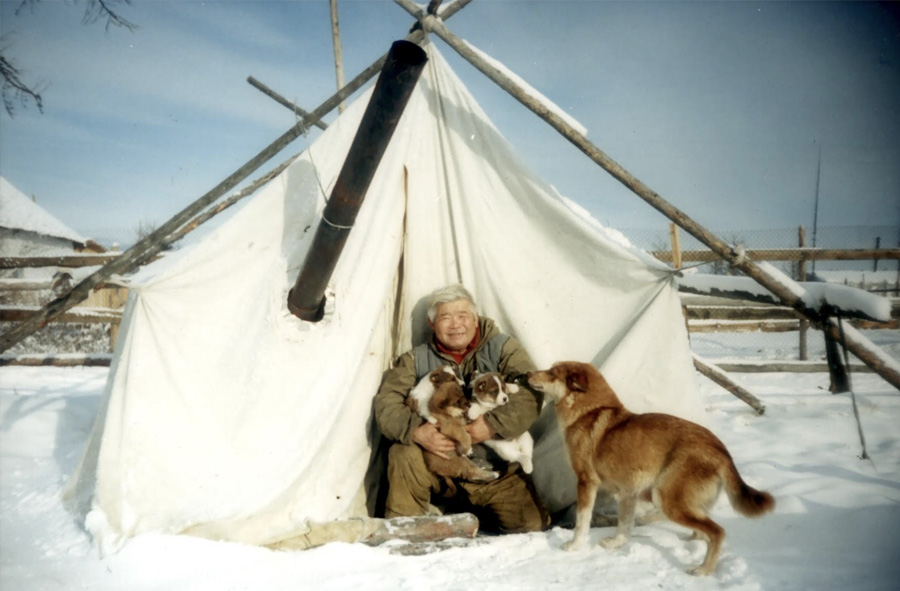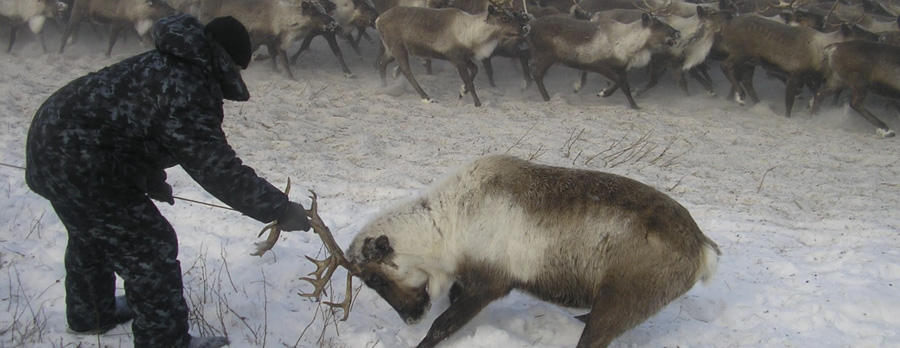The relationship between indigenous peoples and nature is one of harmonious existence, a way of life, deeply-rooted in ecological knowledge as a result of years of experience and observation continuously renewed over time. Their traditional use of natural resources is sourced from their traditional knowledge, which is inextricably-linked, and together, form the intangible
components of indigenous peoples’ natural resource management systems. Moreover, traditional use of natural resources positively impacts on human settlements specifically on the ecology of any given landscape. This is the practice of the Yukaghirs in the Russian Arctic whose responsible attitude toward nature is central to their culture.
Recorded as the most ancient among the people of Eastern Siberia, the Yukaghirs are natives of the Republic of Sakha (ie. Yakutia) particularly Chukotka Autonomous Okrug and Magadan Oblast presently with 1,603 in population. They are comprised of two tribes – the tundra, and the forest Yukaghirs – each with distinct settlement area, culture including language, and livelihood. For the forest Yukaghirs, their livelihood is primarily hunting wild reindeer and elk, and fishing. The tundra Yukaghirs have a more complex economy based around big-game reindeer breeding with hunting and fishing as secondary activities.
Spiritual Connection
Totemic beliefs have been preserved today. In the Yukaghir view, people and animals are related through kinship hence the naming of clans follows that of their totemic ancestors: Hare Clan, Fish Clan, and the like. Yukaghir myths and folklore tell of a special attitude toward the bear, believed to be half-man and half-beast, as a relative. Accordingly, people descended from
the marriage of a bear and a woman.
Yukaghirs believe that animals have spirits, or ‘patrons’, who are subjects of the Master of the Earth. These spirits, seen as the protectors of the animals, look after the wellbeing of their wards. They are believed to be friendly toward hunters but only if they observe the unwritten laws of hunting, that is, to hunt only what are enough to feed their families. Such hunters are called ‘lucky hunters’, or hunters who observe the unwritten rules.
Natural objects as well are believed to have spirits protecting them. The spirits are said to appear only to people who committed transgressions, such as breaking customs, killing more animals than what are needed, desecrating, or scalding sacred areas, and the like. Yukaghirs believe in a special connection between natural objects and people. Their kinship to trees as tree-brothers, for instance, are established through a special ritual. As such, changes occurring to a tree-brother would reflect on the health of its human kin.

Weather Forecasting
The ability to predict weather is key to sustainable traditional nature resource management. Yukaghirs have used traditional observational methods to forecast weather on a daily, seasonal, and longer-term basis. These methods include observation of the sky, wind, sun, moon, stars, snow, and other atmospheric and space phenomena. Some examples: A white halo surrounding the moon, or said to be "the moon dressed in a shirt" is warning for an impending snowstorm. The northern lights "speaking to you" meant severe frost. The behavior of plants and animals is also a predictor: Reindeers that duck and stop on the way as if lost and afraid meant there will be a snowstorm soon, but if they "study" the sky, the sky will clear. On the same vein, dogs rolling in the snow meant there will be snowfall.
The human body is also a source of certain information. If joints “crack,” windy or damp weather is expected. If the body experiences pain, a change in weather is in store. Spiritual experiences including dreams, foresight, and shamanic knowledge are given special attention. It is believed that dreams provide information about changes in the weather, and shamans, in
the olden days, not only knew what the weather would be like, but it was believed they could also alter it.
With the changing climate and increasing unpredictability of the weather, however, animal behavior has changed, consequently traditional knowledge about the weather as well to the extent that in recent years omens no longer proved as accurate. This has impacted on Yukaghirs’ livelihoods. Wild reindeers have unexpectedly changed their migration routes severely disrupting domestic reindeer herding. In summer, with the growing distance of ice from the shore which cubs find harder to reach, polar bears increasingly remain on the coast and eventually make their way into human settlements and attacking domestic reindeer herds, which are being reported as “invasion” of bears and wolves”. Elders have said that predicting the weather, especially over a longer period, has become almost impossible. "Nature has stopped trusting us," explained one elder.
Still, traditional knowledge, in the modern world, retains its importance in biodiversity which should be consciously applied in environmental management, conservation, and restoration.

